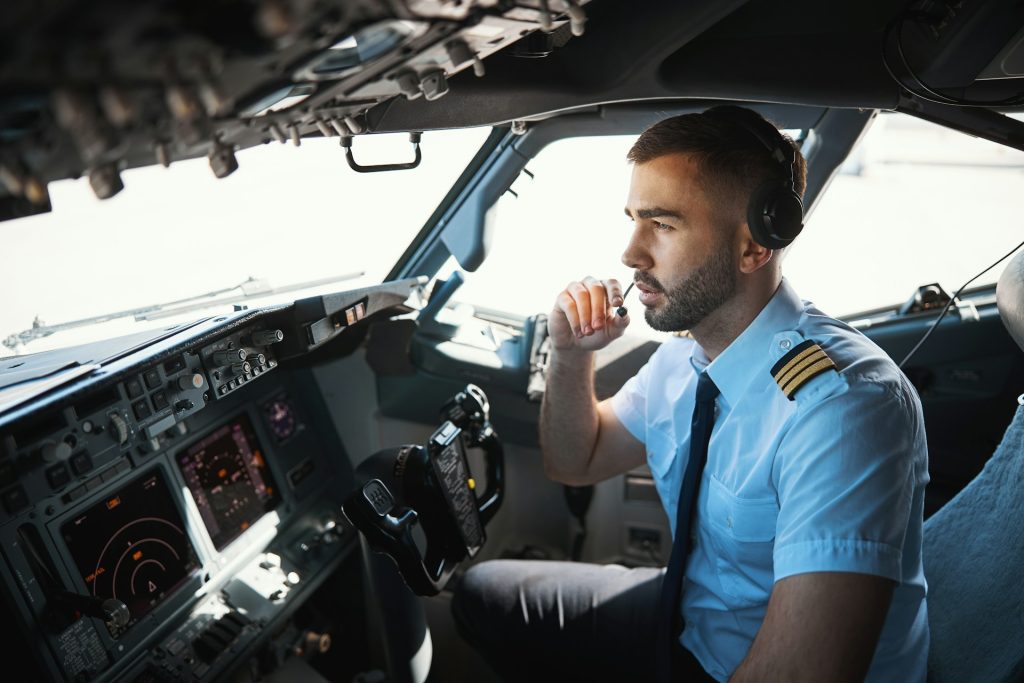Being a pilot takes more than just knowing how to fly. Along with knowing how the aircraft works, a good pilot has to make quick decisions, communicate clearly, and stay focused and responsible. The demands of flying bring mental, emotional, and physical challenges that require rigorous preparation. Aspiring pilots need to develop skills that enhance their reactions under pressure, ensuring the safety of everyone on board. Besides technical skills, pilots must cultivate soft skills that help them work smoothly with crew members, air traffic controllers, and passengers. Achieving balance across these skill sets enables pilots to handle routine flights as well as unexpected situations with composure and confidence.
Technical Proficiency and Knowledge
Technical knowledge is the backbone of any pilot’s skill set, forming the foundation for a safe and efficient flight. Pilots must understand the intricacies of their aircraft, from engine systems to navigation tools, to perform their roles effectively. To keep everyone safe, pilots carefully monitor their planes, stay alert to the weather, and always follow air traffic rules. Comprehensive training helps pilots learn how to interpret complex instruments, follow flight plans, and navigate through various airspaces. Pilots need to understand aviation technology to fly safely, including autopilot and flight management systems. Regular training sessions and simulator exercises help pilots stay current with new aircraft models and industry advancements. Mastery of technical skills ensures that pilots can troubleshoot minor issues and respond swiftly to more serious technical problems.
Strong Communication Skills
Clear communication is critical in aviation, as pilots work closely with both ground control and their crew to ensure safety. Pilots need to be able to convey and receive information concisely, as unclear communication can lead to misunderstandings that impact flight safety. They regularly communicate with air traffic control to coordinate takeoffs, landings, and flight paths, making precise wording essential. Pilots must also listen attentively to any instructions, updates, or warnings provided by air traffic controllers. Within the cockpit, communication between the pilot and co-pilot must be effective to ensure a well-coordinated response to any situation. Pilots often need to communicate with cabin crew and, at times, directly with passengers, keeping them informed and calm in the face of unexpected events. Through training and experience, pilots sharpen their communication skills to enhance teamwork and safety.
Decision-Making and Problem-Solving Abilities
The ability to make swift, accurate decisions is crucial for pilots who may face high-stress situations where every second counts. Pilots are trained to think fast, weigh risks, and make the safest decisions. This skill is especially critical in emergencies, such as unexpected weather changes, mechanical malfunctions, or medical issues on board. Good decision-making helps pilots prioritize safety, sometimes requiring them to make difficult choices, like diverting a flight or landing earlier than scheduled. Problem-solving skills also enable pilots to adapt to various in-flight challenges, whether it’s navigating through turbulence or finding alternative routes due to unexpected air traffic. Successful pilots practice these skills in simulators, allowing them to experience realistic scenarios and develop confidence in their judgment. This experience-based learning is a key part of developing a pilot’s confidence and ensuring the highest safety standards.
Attention to Detail and Situational Awareness
Attention to detail is an essential trait for pilots who must continuously monitor various aspects of the flight. Pilots constantly check their instruments, fuel levels, and environmental factors like weather and airspace restrictions. Situational awareness allows them to recognize potential hazards and avoid dangerous situations by remaining alert to what’s happening around the aircraft. Effective situational awareness also includes understanding how their aircraft fits within the broader air traffic environment, which helps them anticipate movements and maintain safe distances from other planes. By staying alert to small details, pilots can spot minor issues before they become bigger problems, whether it’s a slight deviation in speed or an unusual sound. Situational awareness is honed over time through training and real-world experience, ultimately making a pilot more capable of handling various situations with ease.
Physical and Mental Resilience
The demands of piloting an aircraft require a high level of both physical and mental resilience. Pilots often work long hours and deal with irregular schedules, which can be mentally and physically taxing. Physical stamina is important for managing lengthy flights and coping with the effects of jet lag and changes in time zones. Mental resilience is equally critical, as pilots face high-pressure situations that require calm, focused decision-making. Mental toughness helps pilots stay composed, especially during emergencies, and manage any stress that arises mid-flight. Training programs emphasize stress management techniques, preparing pilots to keep a clear mind and avoid impulsive decisions. Resilience allows pilots to remain sharp and effective, making it a vital skill for anyone in this demanding profession.
Succeeding as a pilot requires more than just the ability to fly. Pilots need essential skills like technical know-how, clear communication, quick decision-making, attention to detail, and resilience to succeed in aviation. These skills work together to help pilots navigate both routine tasks and unexpected challenges with confidence and professionalism. Through comprehensive training, experience, and a commitment to growth, pilots continue refining these abilities throughout their careers. With every flight, they build the skills needed to handle the job’s many demands, keeping themselves, their crew, and passengers safe. Each skill contributes not only to the pilot’s proficiency but also to a broader culture of safety and reliability in aviation. A valuable set of skills helps pilots earn trust and confidence, paving the way for a successful and rewarding career.

